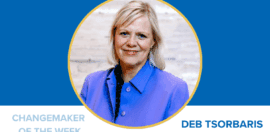GST Reform Fails Fairness Test
5 November 2015 at 11:30 am
The lowest paid Australian families would be hit the hardest if the Turnbull Government raises the goods and services tax to 15 per cent, according to new economic modelling.
Data released by the National Centre for Social and Economic Modelling (NATSEM) and commissioned by the Australian Council of Social Service (ACOSS) found that the flagged GST increase would reduce the spending power of the lowest 20 per cent of households by 7 per cent.
The middle 20 per cent of families would see their spending power decreased by 4.2 per cent, and the top 20 per cent by 3 per cent.
But Prime Minister Malcolm Turnbull told the Melbourne Institute 2015 Economic and Social Outlook Conference on Thursday that tax reform must “share the burden fairly” among Australians.
PM: tax reform must "share the burden fairly" #ESOC2015 pic.twitter.com/ouVbydqezX
— Pro Bono News (@ProBonoNews) November 4, 2015
However, Principal Research Fellow from NATSEM, Ben Phillips, said the proposed reform would be a recipe for inequality.
“An increase in the GST has a much bigger impact on low and modest income households because they spend more of their overall income to meet their living costs, in comparison to people on higher incomes who are better able to save,” Phillips said.
“A broadening of the base of the GST to fresh food, health, water and education would also be regressive, with people on lower incomes paying proportionately more of their incomes on these essentials. The relative impacts are clear: 4.6 per cent of income for people in the lowest income brackets, 2.7 per cent for people in the middle, and just 1.7 per cent for the highest income earners.”
The NATSEM modelling found that raising the GST without removing exemptions would raise $29 billion in 2016 and increase the CPI by 2.8 per cent.
NATSEM has also modelled the impact of raising the GST to 15 per cent to pay for a cut of 5 per cent in all personal income tax rates to demonstrate how this would change who pays what proportion of tax, in reference to their incomes.
“The results are stark: two-thirds of households, on incomes up to about $100 000 would be worse off and the top 40 per cent would gain at the expense of the bottom 60 per cent,” Phillips said.
“The lowest 20 per cent of households by income would lose $33 a week (6.6 per cent of income) on average while the top 20 per cent would gain an average of $69 a week (2.1 per cent of income).”
While not specifically mentioning the proposed changes to the GST, Malcolm Turnbull said any tax reform must be focussed on fairness in order to succeed.
“A reform package must, at the very least, raise the revenue we need, share the burden fairly across the community, and do so in a way that incentivises employment, investment and innovation,” Turnbull said.
“Fairness, I repeat, is absolutely critical. Any package of reforms that is not, and is not seen, as fair will not and can not achieve the public support without which it simply will not succeed.”
The Prime Minister also flagged future tax reforms and said, while new ideas are needed, no single proposal will be taken off the table.
“Any set of tax reforms must be fair, which is why picking off one of the now very venerable reform proposals – I’m waiting to see one that hasn’t been browned for a decade or so, we need a new idea here,” he said.
“They’ve been kicking around for a while, and there’s no harm in that, but that’s why picking off one of these now venerable proposals in isolation to others is always going to be misleading.”
ACOSS CEO, Dr Cassandra Goldie, said raising the GST to fund cuts to personal income tax across the board, as some advocate, was “a recipe for more inequality, not a stronger economy”.
“Increasing the GST to fund income tax cuts is a also a big, complicated revenue ‘churn’ that would do nothing to ease the pressure on State health, education and welfare budgets, particularly as it would clearly require a major compensation package to ameliorate its impacts on people who are hit the hardest,” Goldie said.
“If it’s not about raising more revenue, the Government has to justify why this option is being considered at all.”
Goldie said the welfare peak body was not completely opposed to a reform of the GST, but that any reworking of it needed to start from a base of fairness.
“We agree with business and the unions that tax reform should remove tax concessions that are no longer fit for purpose, shift away from clearly inefficient tax bases such as stamp duties towards efficient bases such as land taxes, and remove distortions in the tax treatment of investment incomes,” she said.
“We welcome the Federal Government’s preparedness to put changes to superannuation tax concessions, negative gearing and capital gains and other tax concessions and loopholes, such a discretionary trusts and other tax shelters, back on the table.
“However, if the Federal Government’s main game for tax reform is to shift the responsibility for paying taxes away from personal incomes towards consumption, it would fail on all grounds.
Fairness and simplicity would be undermined and it would do little or nothing to improve economic efficiency. It would be a recipe for driving inequality.
“ACOSS does not rule out any increase in the GST. However, an increase in the GST should not be our starting point, when low and modest incomes earners carry the greatest risk.”







